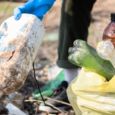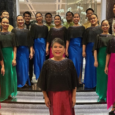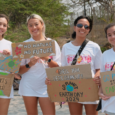How to make a student educational trip
Travel is an old-fashioned way of acquiring knowledge. You can go to some fascinating city, hold a seminar with local students or experts, and discuss the results together. It is important to remember that students should return not only with beautiful photos on Instagram but also with luggage of new knowledge and experience from any educational trip. It would be a shame to spend a lot of energy and money on educational tours and then still looking for persuasive essay writing service online and other academic research papers because you can’t handle the assignments yourself. Today we will tell you about what you need to do to organize an educational trip for students.
Plan everything
The main principle of the trip is to go to study, not to have fun. To organize the educational activities, you study the locations of our trip in advance, choose a general topic, build the logistics, organize accommodation, meals, review insurance options, build the route of educational excursions, and calculate the budget. An educational trip does not have to be to another country or region. However, if you intend to leave your country, take care of the visas. Your plan should cover every detail, from stops at gas stations if you are traveling by bus to time to visit museums and other places of interest.
Discuss everything with students and parents
Organizing an educational trip for students also includes informative question-and-answer conversations with parents and students themselves. You should explain in detail what awaits the students on the trip, what its goals are, and what results they should anticipate. Suppose the students need to prepare some materials for the class (stationery, for example). In that case, you should let them know in advance. Moreover, you should give a list of things you recommend taking with you, from warm clothing to snacks and food containers.
Plan your group activities
As we have written before, any educational trip should have a purpose and academic significance. Whether it’s a language course or a cooking course, you should set clear goals. It will be more comfortable and more fun for students to work in groups. It can be as small groups of two or three people as it can be large. Working as a team will bring the students together and help them reach their goals collaboratively. So, you can make each student responsible for a certain aspect — history, geography, economics, culture, art. Every evening with the night light on, you can discuss the past day in a “one fact, one emotion, one memory” format. The evening is a great time to watch pictures taken during the day. If it’s a trip to some natural attraction, you can sit by the campfire and tell mystical stories.
Leave students some free time
Do you know what makes educational trips so special? It’s not just an opportunity to learn something new in an unusual place under the guidance of a teacher. It’s also the opportunity to experience things firsthand and to dive into the atmosphere. That is why it is important to structure your plan so that students have time to relax and spend time on their own. Planning a guided trip to a museum? Add another 30-60 minutes to the tour time for students to explore the attraction on their own. Give them the opportunity to enjoy lunch in the park or watch a movie together in the evening. That way, education will be fun, and they are sure to achieve the goals you have set.
Checking the results
So how do you check the achievement of the educational trip goals? As with any lesson, you had to prepare and come up with ways to assess the quality of the knowledge the students have received. It could be a presentation, a mini-film, an essay, or a test or quiz to evaluate what they have learned.
No one expects students to have quiet nights, flawless obedience, and other qualities of silky straight-A students, but it’s still worth agreeing on rules. For example, if you have been up all night, you do not show you are not feeling well during the day. You have to teach your students to respect each other and their boundaries. That is why group assignments are so important.
Such a big deal as an educational trip is built on trust. Parents trust their children’s to a teacher. The teacher trusts the students: not entering without knocking, not controlling every step, giving free time. An educational trip is suitable for a mature team, each member of which will remember the trip for a lifetime. During such a journey, you must remember to step out of your role as a teacher and become a friend or colleague to the student who also enjoys the trip with them.





